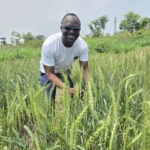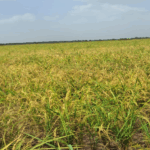
In the Savannah Region of Ghana, migration has increasingly become a household mechanism in adapting to climate change.
Dr. Shelta Gatsey, Lead of the Strategic Initiatives for African Governance, explains, “For many young people in regions affected by climate variability, migration is often temporal or seasonal. It allows them to earn money, supplement their livelihoods when their harvests fail, and, in some cases, use remittances as a foundation to build a more secure future.”
In a remarkable turn of events, migrant youth who had previously left their homes in search of better opportunities are now returning to their communities.
This shift follows key interventions by stakeholders designed to address the devastating effects of the dry spell in Ghana’s Savannah region.
Migration, in this context, emerges not merely as a survival tactic but as a strategic adaptation to climate stress.
The Savannah Farmers Brigade (SFB), a leading agricultural organization, has launched initiatives to support farmers, primarily by promoting climate-smart agricultural practices.Testimonials of Return:
A 200-acre rice farm at the suburb of Buipe
Thirty-four-year-old Gifty Ibrahim, a native of Buipe, shared her experience of migration.
She lost her six acres of maize and four acres of groundnuts to the dry spell, prompting her move to Kumasi in the Ashanti Region.
“The last dry spell affected my six-acre maize farm and also four acres of groundnuts and spoiled everything. So, I migrated to Kumasi and worked and sent the money home,” she explained. “When we travel, we’ll be working and sending the money to the house so that when I return, I’ll use that money to invest in a meaningful venture.”
Musah Naimah, another native of Buipe, first migrated to Accra in 2017 for greener pastures.
“I must say, all wasn’t rosy there, especially what one would eat and where to sleep. But thank God, I was able to gather some money and returned home,” Mrs. Naimah indicated.
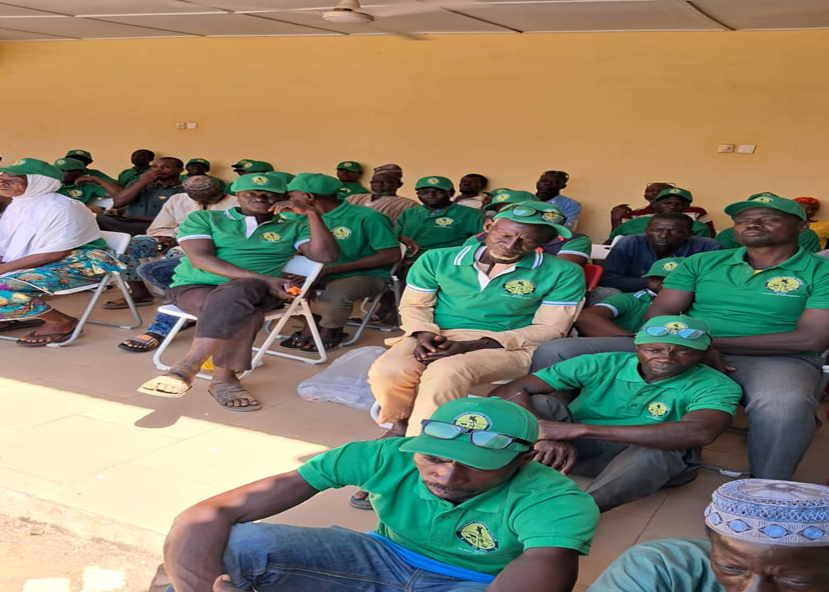
SFB Farmers undergo training on double cropping at Buipe
These stories are increasingly common across the region, particularly in communities like Daboya, Mugrigu, Mpaha, and Bole, where migrant youth are now returning home equipped with financial and practical resources.
The Savannah Region is highly vulnerable to climate change, with rising temperatures and shifting rainfall patterns severely affecting agricultural productivity.
According to the Savannah Region Department of Food and Agriculture, 105,922 young farmers were affected during the 2024 cropping season, including 54,491 males and 51,431 females
To address this challenge, farmers in the region are adopting climate-smart agricultural practices that enhance resilience and sustainability.
The Double Cropping Strategy
“We’re working with partners to provide climate-resilient seeds, irrigation systems, and training to enhance farmers’ adaptive capacities,” said Gbenapewura Abdalla Mahama Adam, Executive Director of the Savannah Farmers Brigade.
One effective strategy being implemented is double cropping, which involves planting and harvesting two crops in a single season.
This approach maximises the use of the rainy season and reduces the risk of crop failure.
Farmers can, for example, plant maize in April and harvest it in June, followed by groundnuts or cowpea in July.
Mr. Lawrence Nuzagla, a 76-year-old farmer, is among the beneficiaries of the initiative.
“I started the double-cropping initiative in 1977 here in Kongo, and I must confess that it’s very helpful. Through this method, some of my children have completed school and are in the working class,” he stated.
“I always plant groundnuts first, quickly harvest them in June, and then farm maize. Another time, I crop beans, harvest, and plant maize. This has been very helpful because I don’t spend, but I get more money from it.”
Dabapewura Seidu Abdul Fatawu, a sub-chief of Buipe and commercial farmer with a 200-acre rice farm, chairs the Savannah Farmers Brigade and strongly endorses the initiative.
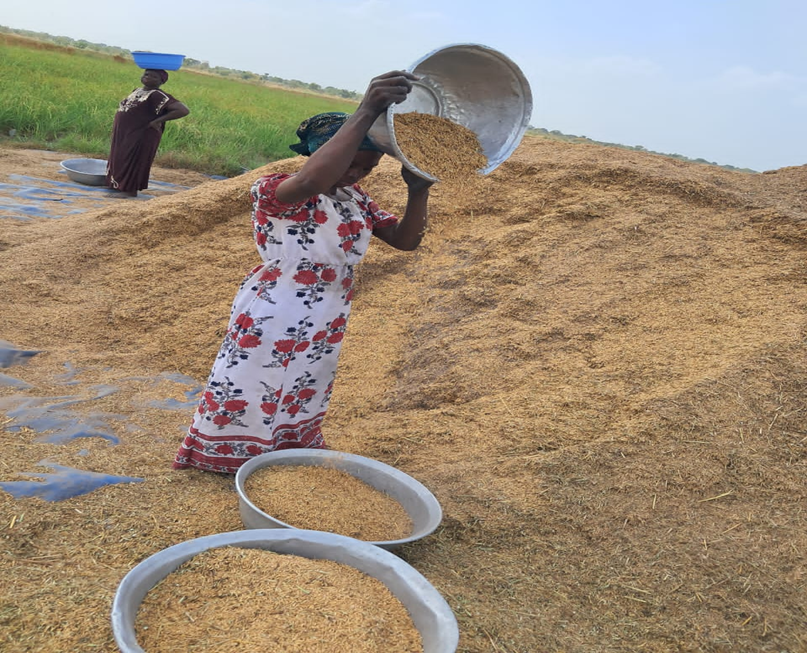
“Yes, planting twice a year is possible, and we [SFB] are already practising it. We sometimes plant watermelon, and right after harvesting, we plant maize,” said Mr Fatawu. “Another time, we plant maize, and after harvesting, we sell it fresh, get the money, and re-crop in the same land. Many farmers are not clear about the initiative, and that is why we, as an association, are training our farmers.”
Mrs. Joyce Beyuo also attested to the method’s effectiveness.
“The entire idea or initiative is very good because it reduces labour costs and the risk of losing out to the dry weather,” she emphasised.
“In my first season of cropping, I planted maize once, but in the second season, I realised that I could plant twice. So, I started it with groundnuts in May, and after harvesting, I put in maize. I can tell you my income doubled as compared to the previous season when I planted once. Since then, I’ve been cropping twice a season, and some of my colleague nurses are also doing it.”
Research and Hope for the Future
The double cropping initiative was informed by a study conducted by Professor Francis Malongza, Lecturer and Head of the Department for Community Development Studies at the University for Development Studies, Tamale campus.
His research in Wa, Bawku West, and Bongo focused on cultural influences on agriculture.
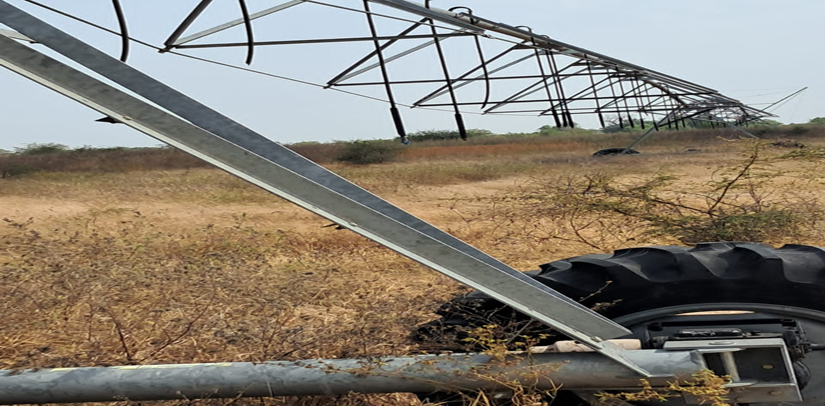
“The farmers in these areas have something similar—the pattern of rainfall and cropping period. So, we came up with the initiative for our farmers, and I can tell you that the benefits are huge,” Professor Malongza noted.
“This initiative will increase crop yields, reduce poverty, improve food security, and enhance resilience to climate-related shocks.”
While the dry spell has severely impacted farming communities, the combined efforts of Professor Malongza and the Savannah Farmers Brigade are offering renewed hope, enabling farmers to adapt to climate variability, improve household income, and secure a more resilient agricultural sector.
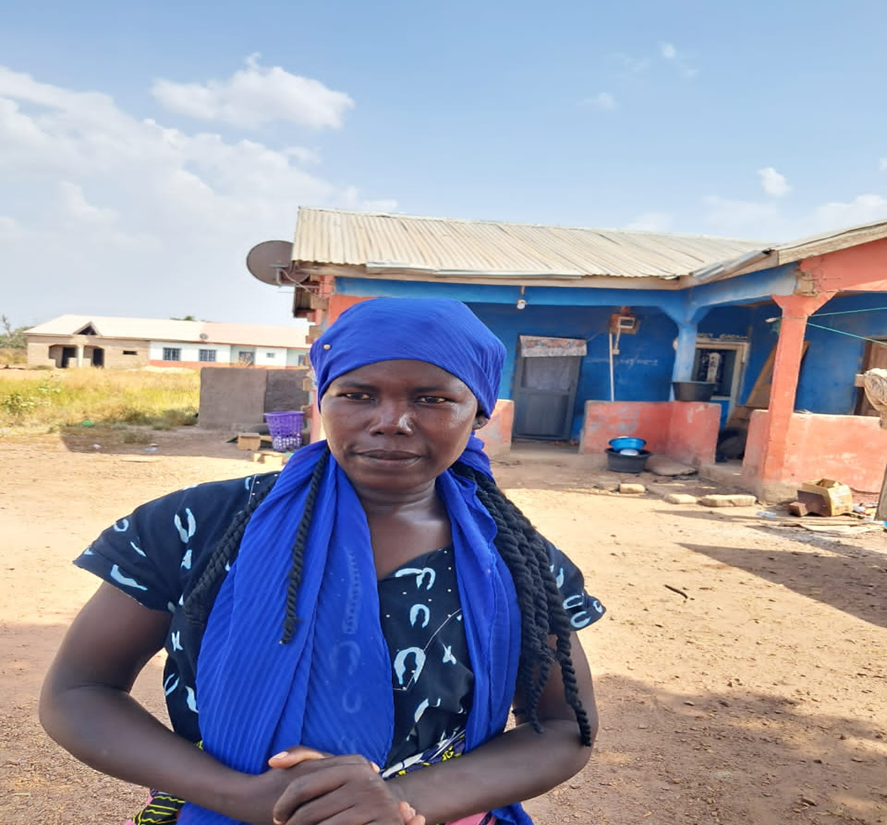
The benefits of the double cropping initiative are significant. By planting two crops in a single season, farmers dramatically increase total harvests from the same plot of land. Testimonials from farmers like Mrs. Joyce Beyuo confirms that income can double compared to single-season planting.
The initiative maximizes the use of the rainy season, reduces the risk of total crop failure, and helps bridge rural poverty gaps. Higher and more consistent yields contribute directly to food security for both households and the wider community, making this strategy a cornerstone of climate adaptation in the Savannah Region.
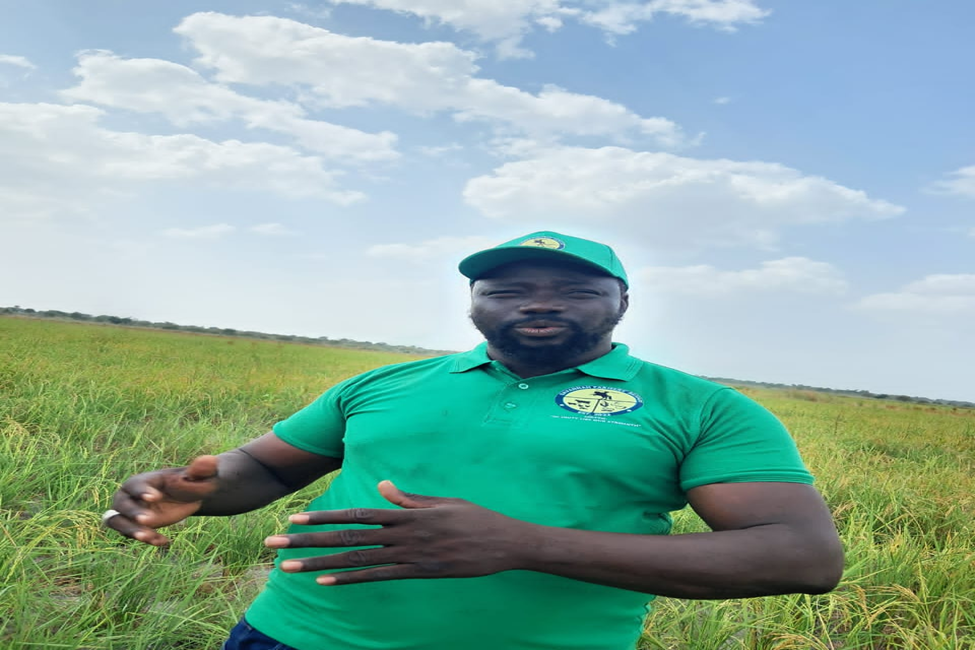
This is Joy News-CDN-University of Ghana C3SS project with funding from CLARE R41 Opportunities Fund.



